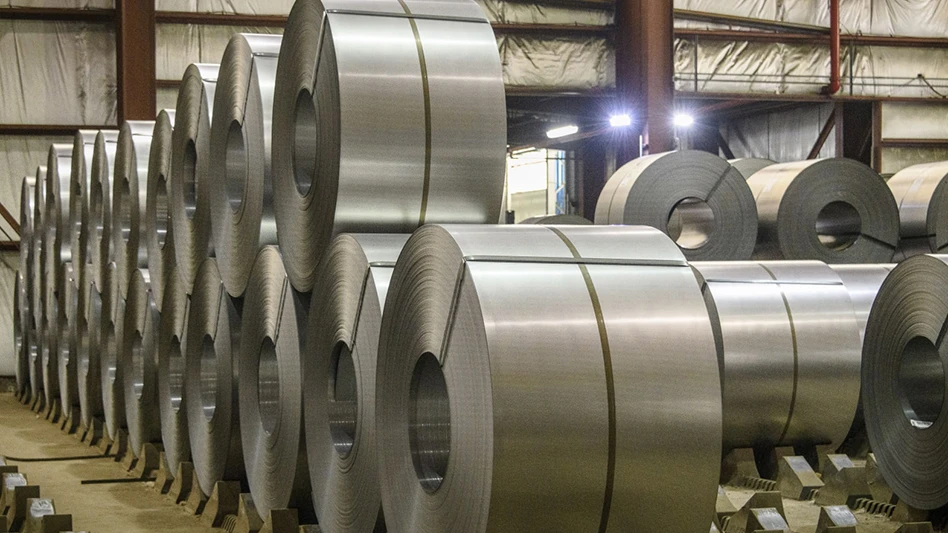In the UK, the British Standards Institute is the body that develops such standards and declares them to be official British standards that can then be used by industry.
The BSIA has 14 sections of membership, one of which is dedicated to information destruction (ID) companies in the UK. BSIA membership has been an important factor for many years in reassuring customers that they are using a professional information destruction company.
For some time, BSIA ID companies have complied with their own code of practice for the secure destruction of confidential material. This code of practice will soon be developed into a British standard. Therefore, BSIA members will soon possess a double-edged sword: They will be able to tell customers that they comply with a new British standard in which they have played an integral part in developing.
SETTING A NEW STANDARD
The requirements of the Data Protection Act of 1998 are at the heart of the new British standard that is likely to be published in the spring of 2006. The standard will be known as BS 8470 Code of Practice for the Secure Destruction of Confidential Material and is being developed from a code of practice originally written by the BSIA’s Information Destruction section. BSIA representatives have played a key role in developing the code of practice into a British standard and have been represented on the British Standards Institute’s committee.
The new British standard will outline the key requirements of a professional information destruction company. Security is integral to the entirety of the standard, which will demand that the premises on which information is to be destroyed be fitted with an approved intruder alarm that conforms to British and European standards and is monitored by an approved alarm receiving center. The standard will also require secure destruction firms to install closed-circuit television (CCTV) systems to monitor unloading, storage and processing areas. Security vetting of staff will also be required.
The standard detail specific requirements for collection vehicles and on-site destruction vehicles to ensure that they are as secure as they can be.
The new British standard will also state that the destruction of confidential material should take place within one working day from its arrival at the destruction center.
Specifying shred sizes and classifying the types of confidential material to be destroyed are important factors in ensuring secure destruction of data. The new standard will provide a comprehensive table of material-specific shred and disintegration sizes. This table will give the recommended method and maximum cutting width for various categories of confidential material.
ENVIRONMENTAL MATTERS
Protecting the environment through the responsible disposal of material is essential to the new standard.
The new standard will require end products consisting of recyclable material, such as paper, metal or plastics, to be recycled. Where the end product is not recyclable, the environmental impact, cost and convenience of other methods of disposal should be taken into account.
Landfill will only be considered as a disposal option when no other method of disposal is practicable.
These measures are essential to UK ID companies shouldering their environmental responsibilities and will reassure customers that their ISO 14001 requirements will be met.
EDUCATING BUSINESS
It is hoped that the development of this new standard will further reassure customers that they are placing their confidential data into the hands of professionals. By far the majority of such material is disposed of via municipal refuse collection or scrap paper reprocessing, neither of which generally involves secure handling. This is why the BSIA is playing a key role educating cusotmers in the adoption of secure information destruction procedures.
Integral to this education process is the development of a BSIA Security Waste Audit, which poses seven specific questions to help companies assess the quality their of current procedures.
The audit provides a quick and simple way to measure awareness and to identify loopholes, allowing businesses to audit their own disposal procedures and determine whether they should consider employing a secure information destruction company that complies with relevant standards. The Security Waste Audit is available from the BSIA at www.bsia.co.uk/shredding. NEW HORIZONS
The development of the new British standard should prove to be an important factor in convincing UK businesses that purchasing services from a professional information destruction company is essential to the security of their business.
The BSIA will continue to promote the importance of standards to end-users and will certainly be at the forefront of innovation and any future standards development in this area.
The author is chairman of the British Security Industry Association’s Information Destruction section. More information on British standards is available by e-mailing info@bsia.co.uk.

Explore the April 2006 Issue
Check out more from this issue and find your next story to read.
Latest from Recycling Today
- Fitch Ratings sees reasons for steel optimism in 2025
- P+PB adds new board members
- BlueScope, BHP & Rio Tinto select site for electric smelting furnace pilot plant
- Magnomer joins Canada Plastics Pact
- Out of touch with reality
- Electra names new CFO
- WM of Pennsylvania awarded RNG vehicle funding
- Nucor receives West Virginia funding assist





